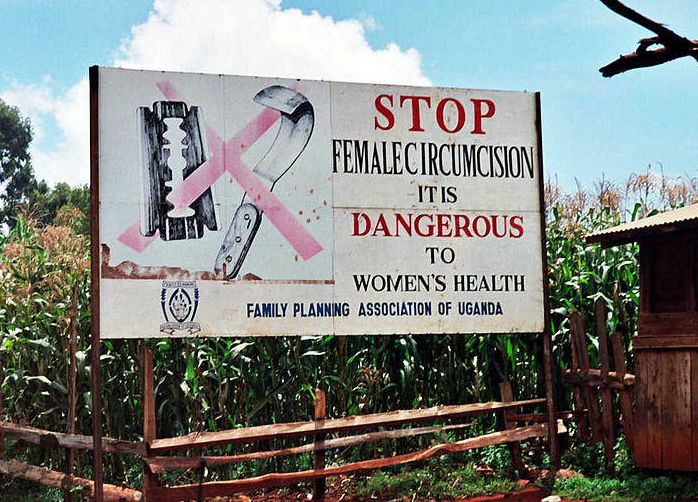The following press release was published in BanglaNews24.com
KUALA LUMPUR: Asian activists and civil society have called for collaboration, resources and support to end female genital mutilation/cutting (FGM/C) across the region in a new consultation report into the practice.
Launched online, the consultation surveyed activists and civil society organisations in Asia and found a strong demand for a supportive network to help end the issue, a press release said.
The consultation is spearheaded by Malaysia-based regional feminist NGO, the Asian Pacific Resource and Research Centre for Women (ARROW), and global NGO, Orchid Project.
Sivananthi Thanenthiran, Executive Director of ARROW commented: “The Asia Network to End FGM/C is set to actively lobby governments in the Asia Pacific to end the practice to achieve the Sustainable Development Goal (SDG) 5 on gender equality and empowering all women and girls. We would specifically look at SDG target 5.3 which relates to ending FGM/C.”
Responses came from across the Asian continent, including activists, community-based organisations, survivors of cutting, government, journalists and academics from countries including: Bangladesh, India, Indonesia, Malaysia, Mongolia, Myanmar, Nepal, Pakistan, Philippines, Singapore, Sri Lanka, Vietnam, and others, where FGM/C is known to take place, despite a critical lack of data available.
Religion was perceived by most of the participants in the consultation as a factor driving the continuation of cutting in their local contexts. Other significant drivers identified were FGC being considered a social norm within affected communities and gender inequality.
The consultation report draws on interviews with activists, researchers, religious scholars and grassroots organisations working on FGM/C or other areas of work such as gender-based violence and sexual and reproductive health and rights.
They are calling for greater political will to end FGM/C, including legislation and its implementation and enforcement, as well as broad awareness raising, direct work with affected communities, and work to challenge harmful social and gender norms. Results indicated high levels of support for a network amongst participating activists, organisations and allies, with an overwhelming 96% of participants wanting to join the Asia Network to End FGM/C.
Respondents identified numerous challenges to their work, from a shrinking civil society space to organisations and campaigners being threatened for their activism – which is an issue of concern that the Network will be seeking a role in addressing.
One civil society respondent commented: “There is a backlash concerning FGM in Southeast Asia before campaigning against it has even really started. FGM/C is becoming more acceptable, parts of the governments are defending it, and NGOs and activists are attacked, if not criminalised”
Civil society actors in Asia working on the issue were largely individual activists and community based organisations (CBOs), and mostly reported low levels of capacity, recognition, and lack of access to funding. They called for a forum to reinforce local advocacy messages at a regional level, as well as urging for the creation of an umbrella organisation to help to provide legitimacy and support greater prioritisation of the issue.
An Indian activist taking part in the consultation said: “The issue of FGM/C in Asia hasn’t gained much attention either nationally or internationally. An Asia network would be a strong voice to show a united front across the region to push policy makers, UN and donors to focus on the issue here.”
The consultation highlighted the lack of support, capacity and increasingly challenging contexts for those working on ending FGM/C in Asian countries. The consultation process also emphasised the need for research and evidence generation across the board.
“We are really grateful to regional stakeholders that have engaged with the Asia Network to End FGM/C so far. The consultation has really confirmed the urgent need for improved research and evidence on how the practice is affecting women and girls across Asia, and how we can end the practice.” said Grethe Petersen, Chief Executive of the Orchid Project.
According to UNICEF (2018), 4.1 million girls were cut in 2019, with increasing numbers at risk each year. At least 200 million girls and women have been cut in 30 countries, however, this figure does not include many countries in Asia Pacific where FGM/C is known to take place, so the true scale of the problem is unknown because of these gaps in data.
The Asia Network to End FGM/C will establish a platform of NGOs, activists, and researchers across these countries to build stronger relationships and collaboration between organisations working across Asia. The platform will gather data and evidence on prevalence, take survivor needs and viewpoints into account, engage with religious scholars who can influence communities positively, and urge governments to report on the SDG indicator (5.3.2) related to FGM/C.
Read the Asia Network to End FGM/C Consultation Report HERE
By: BanglaNews24.com







